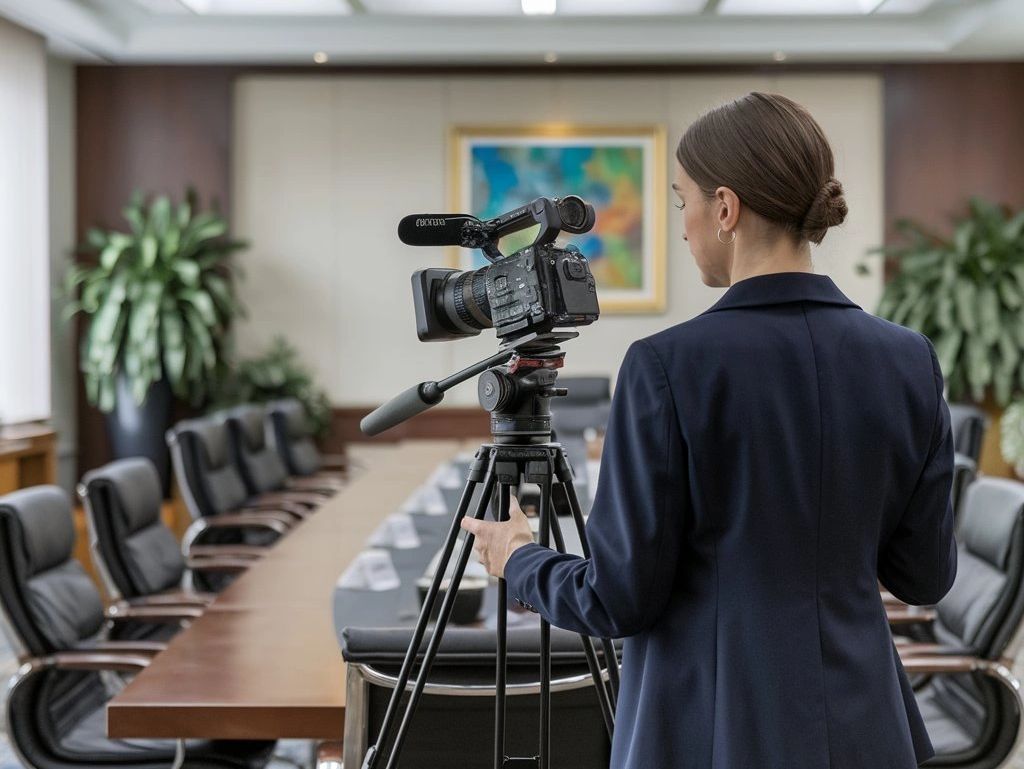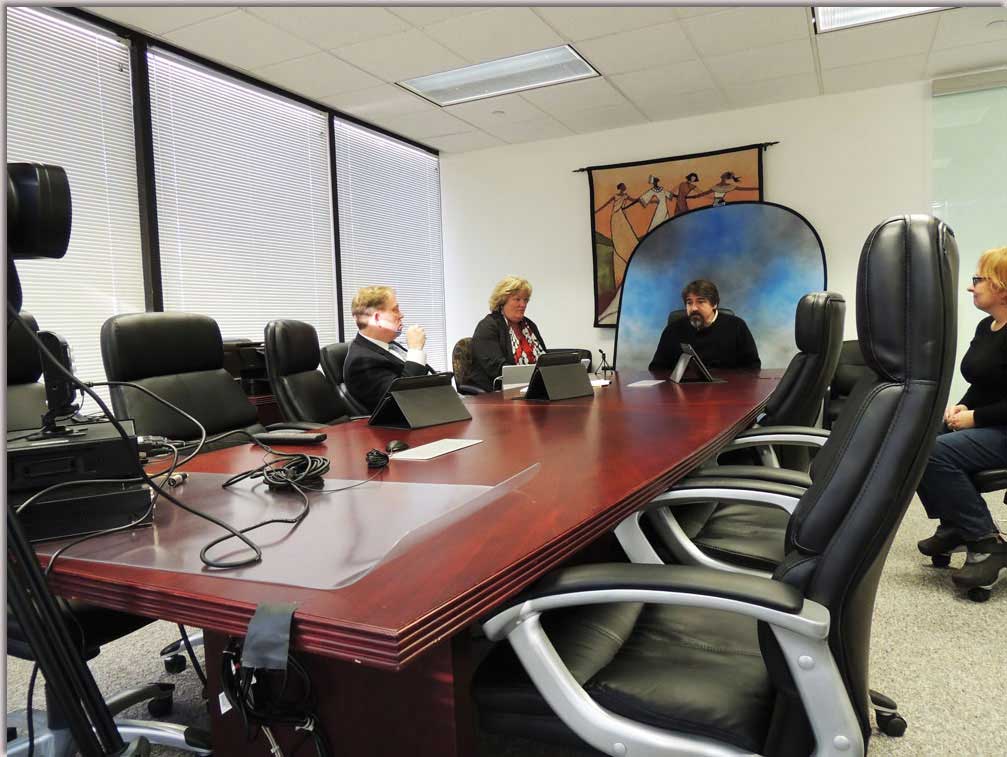Legal video depositions: A must-have tool for capturing truthful testimony
Wiki Article
The Value of Lawful Video Depositions in Modern Legal Providers: What You Should Know
Legal video clip depositions have actually come to be vital in today's lawful landscape. They give a multidimensional sight of witness testimonies that standard transcripts just can not match. By capturing both non-verbal and verbal communication, these depositions boost the general understanding of a witness's reputation. The efficiency of video depositions pivots on various variables, consisting of conformity with lawful standards and ideal practices. Discovering these components discloses their real importance in contemporary lawful servicesWhat Are Lawful Video Clip Depositions?
Legal video depositions work as a crucial device in the lawsuits process. They entail taping witness testimonies in a video clip format, recording both verbal and non-verbal communication. This technique allows attorneys to record the behavior, expressions, and reactions of witnesses, supplying a richer context for the testament. Normally carried out in a controlled environment, these depositions are led by lawyers that ask inquiries while a stenotype reporter records the dialogue. The resulting video clip can be critical for trial preparation, as it allows lawyers to examine the reliability of witnesses and fine-tune their techniques. In addition, legal video depositions can be used in different legal contexts, ranging from civil disputes to criminal situations. The visual and auditory components of video depositions enhance the presentation of evidence, making it a necessary element in the modern lawful landscape. On the whole, they add considerably to the efficiency and efficiency of legal proceedings.
Advantages of Video Depositions Over Traditional Techniques
Video clip depositions use many benefits compared to typical approaches of taking witness testimonies. One significant advantage is the capability to record both audio and visual elements, offering an extra thorough record of the witness's declarations. This twin format boosts quality and enables attorneys to reference certain subtleties throughout trial prep work. In addition, video depositions help with remote engagement, making it less complicated for witnesses that might be inaccessible for in-person looks due to geographical restrictions or health issues.Moreover, video depositions can accelerate the overall deposition procedure, decreasing the moment and costs related to traveling and logistics. They likewise boost access, as taped depositions can be conveniently shared among lawful groups and referenced any time. This ease adds to much better instance administration and preparation. Overall, video clip depositions stand for a contemporary, effective strategy to collecting witness testimonies, aligning with the progressing needs of the legal occupation.The Duty of Body Movement and Tone in Testimonies

In lawful video depositions, body movement and tone play important functions in conveying a witness's reputation and trustworthiness. Nonverbal cues can give insights into a witness's emotion, influencing just how their testament is regarded. Understanding the impact of these aspects is vital for jurors and lawyers alike when reviewing the dependability of a statement.
Nonverbal Communication Insights
While verbal communication is typically emphasized in lawful statements, nonverbal cues such as body movement and tone play a vital duty in conveying trustworthiness and feeling. Onlookers of depositions might keep in mind that a witness's pose, motions, and face expressions can greatly influence assumptions of dependability. As an example, consistent eye get in touch with may indicate confidence, while preventing look can recommend deceit or pain. The tone of voice-- its volume, speed, and pitch-- can impart feelings of sincerity or unpredictability. Attorneys must be attuned to these nonverbal signals, as they commonly supply vital context that enhances talked words. Recognizing these subtleties can boost the efficiency of depositions and influence the result of legal process.Psychological Tone Effect
The emotional tone shared throughout legal testimonies greatly affects exactly how a witness is regarded. Body language, vocal inflections, and faces play essential roles fit the narrative of a statement. A witness showing confidence through constant eye contact and a calm tone can infuse a feeling of dependability and engagement. Alternatively, signs of stress and anxiety, such as fidgeting or a shaky voice, might lead to suspicion regarding their account. The nuances of psychological expression can affect the interpretation of truths, making it necessary for lawful specialists to acknowledge these cues. In video depositions, the auditory and visual elements integrate, highlighting the significance of psychological tone in sharing sincerity and reliability within the legal process.Reliability and Dependability
An essential aspect in establishing integrity and credibility during testaments depends on the witness's body language and tone of voice. Onlookers often rely upon non-verbal hints-- such as eye get in touch with, pose, and gestures-- to analyze a witness's genuineness. A witness who maintains eye get in touch with and presents open body language may be perceived as more sincere and trusted than one that prevents eye contact or appears shut off. In addition, tone of voice plays a vital role; a stable, tranquil tone can strengthen the trustworthiness of the testimony, while fluctuations in pitch or volume might increase uncertainties. Eventually, the mix of body language and singing tone substantially affects just how a witness's statements are gotten and translated in a lawful context.Finest Practices for Conducting Video Clip Depositions
Performing video depositions calls for mindful planning and implementation to guarantee a clear and effective presentation of statement. First, it is essential to pick a peaceful, well-lit place to lessen disturbances investigate this site and protected optimal video clip quality. The equipment ought to be checked in advancement, consisting of cams, microphones, and lights, to prevent technical concerns throughout the deposition.Next, parties involved need to examine the style and procedures in advance, seeing to it that everyone comprehends their roles. The deponent needs to be informed on the process, consisting of exactly how to respond plainly and concisely.Additionally, preserving a specialist demeanor throughout the session is important. This consists of avoiding talking over one another and confirming that all concerns are directed suitably. Lastly, it is crucial to tape the deposition in a layout that enables very easy playback and evaluation, protecting the stability of the testimony for future use.Lawful Considerations and Conformity Issues
Exactly how do legal factors to consider and conformity problems influence the performance of video clip depositions? Lawful professionals should navigate a complex landscape of guidelines, guaranteeing that video clip depositions stick to jurisdictional policies and criteria. Compliance with laws concerning privacy, consent, and tape-recording methods is crucial. For example, getting explicit authorization from all events entailed is necessary to stay clear of legal repercussions.Additionally, the admissibility of video clip evidence in court can rest on conformity with step-by-step needs. Guaranteeing that the tools used meets technological criteria is likewise important, as low quality can weaken the deposition's reliability.Moreover, lawyers must know any kind of particular state regulations that govern video clip depositions, as these can vary considerably. Failing to deal with these factors to consider can not only threaten the integrity of the deposition but likewise influence the overall instance method, eventually affecting the client's lawful results.Exactly How Video Depositions Impact Jury Understanding
While video clip depositions can work as powerful devices in lawful procedures, their influence on court understanding is substantial. The auditory and visual aspects of video clip recordings provide jurors with an extra detailed understanding of witness disposition, integrity, and emotional actions. This multimedia strategy can boost the jurors' capacity to analyze the dependability of testimony compared to traditional text-based transcripts.Moreover, video clip depositions enable jurors to observe body language, tone of voice, and faces, every one of which can affect their interpretation of the witness's statements. The presence of a witness on screen can humanize them, cultivating compassion and connection, which may sway jurors' viewpoints. Alternatively, a witness that appears undependable or incredibly elusive on video may cause unfavorable assumptions that influence a court's decision. Ultimately, the dynamic nature of video depositions plays an important role in shaping just how jurors analyze proof and reach their verdicts.The Future of Video Clip Depositions in Legal Method
As improvements in innovation continue to reshape the legal landscape, the future of video clip depositions is poised for considerable advancement. Advancements such as synthetic knowledge, digital truth, and enhanced video clip conferencing tools are expected to streamline the deposition process and boost availability. Legal experts might make use of AI-driven analytics to analyze witness reliability and situation stamina more effectively.Moreover, the combination of virtual truth might allow juries to experience immersive simulations of depositions, offering deeper context and understanding. In addition, the pattern toward remote depositions is likely to persist, supplying greater versatility for attorneys and customers alike.As remote job ends up being significantly normalized, video depositions will likely come to be common technique, reducing prices and time restraints linked with conventional approaches. Overall, these technical improvements guarantee to enhance the efficiency, performance, and ease of access of video clip depositions in lawful technique, inevitably transforming just how legal experts plan for test.Often Asked Inquiries
Just How Much Do Lawful Video Depositions Commonly Cost?

Can Video Clip Depositions Be Used in Any Type Of Type of Instance?
Video depositions can be utilized in various sorts of cases, consisting of civil, criminal, and household legislation. Their adaptability allows attorneys to present witness testaments effectively, adapting to the certain needs of different legal scenarios.What Devices Is Required for a Video Clip Deposition?
To perform a video clip deposition, essential tools includes a high-quality video camera, microphone, lights, and a reliable recording device. Furthermore, a computer system with modifying software application may be required for post-production and formatting the final video.The length of time Does a Normal Video Clip Deposition Last?
A normal video deposition lasts in between two to four hours, depending upon the intricacy of the instance and the variety of concerns positioned. Prolonged sessions might take place, but breaks are usually integrated our website for individual convenience.

Are Video Clip Depositions Admissible in Court?
Video clip depositions are generally acceptable in court, offered they follow lawful criteria and policies of proof. Their usage enhances quality and protects witness statement, assisting in the judicial procedure throughout tests and hearings. Legal video depositions have become necessary in today's lawful landscape. In addition, legal video depositions can be used in various lawful contexts, varying from civil disagreements to criminal situations. In addition, video clip depositions promote remote engagement, making it much easier for witnesses who might be not available for in-person looks due to geographical restraints or wellness issues.Moreover, video depositions can quicken the total deposition procedure, reducing the time and expenses connected with traveling and logistics. Making certain that the equipment used meets technological requirements is likewise vital, as bad top quality can threaten the deposition's reliability.Moreover, lawyers should be mindful of any type of certain state legislations that regulate video clip depositions, as these can differ considerably. Additionally, the trend toward remote depositions is most likely to linger, supplying higher flexibility for customers and lawyers alike.As remote job comes to be significantly stabilized, video depositions browse this site will likely become common technique, lowering prices and time constraints connected with traditional methods.Report this wiki page